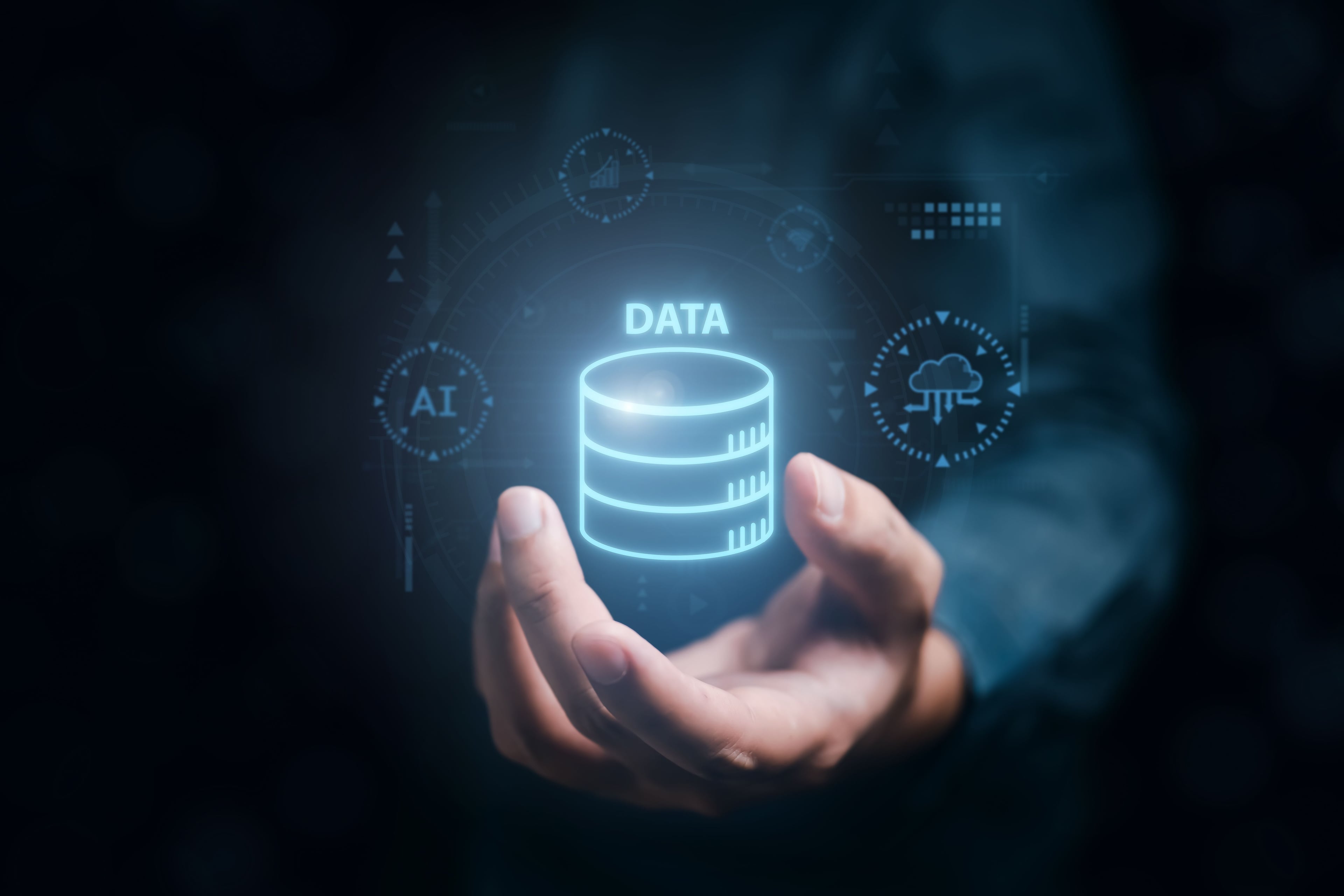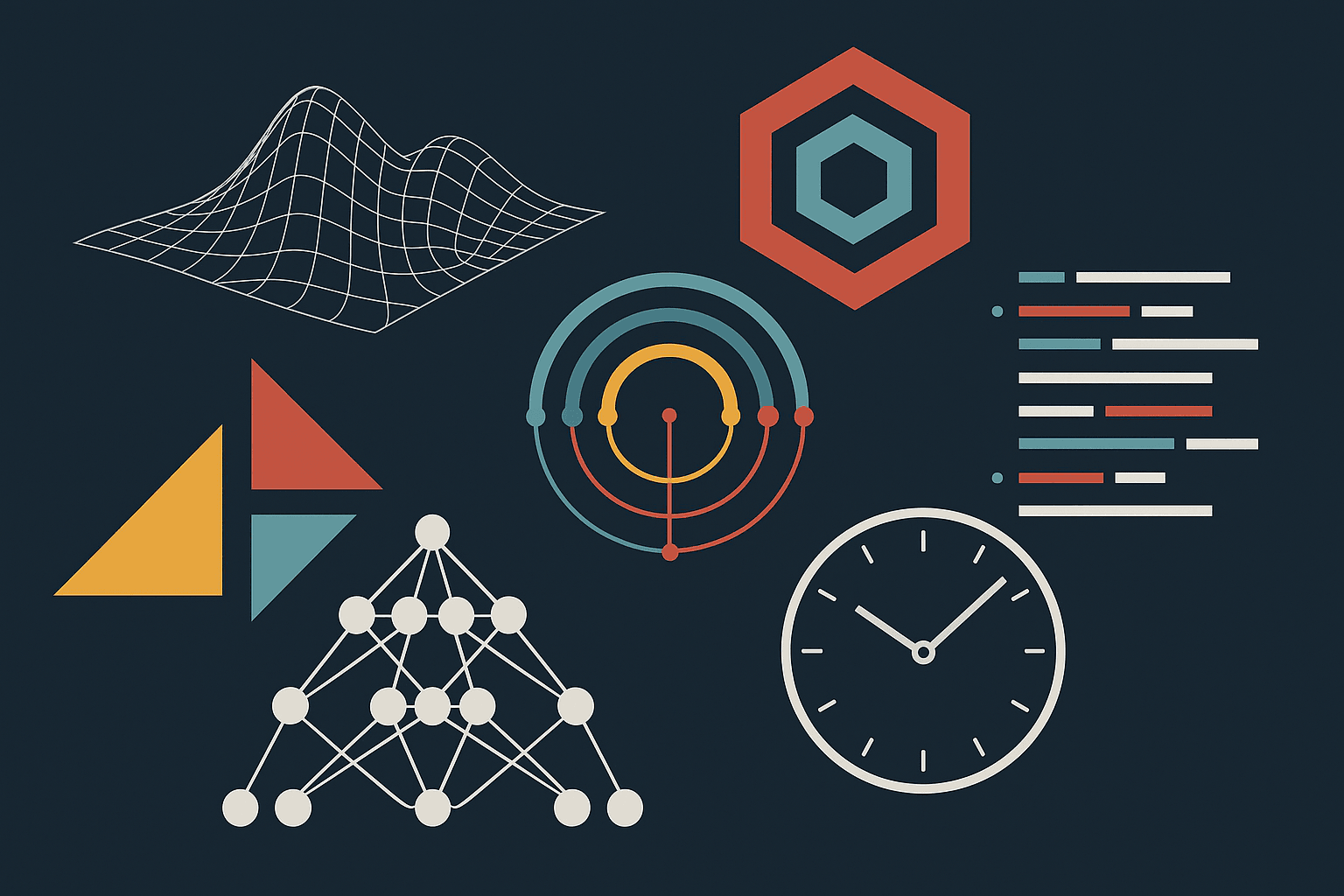
Top Data Privacy Practices for 2025: Ensure Compliance and Protection
Data privacy means safeguarding personal information from misuse. It’s essential to prevent identity theft and build trust online. This article will guide you through the top data privacy practices for 2025 to help you stay compliant and secure.
Key Takeaways
- Data privacy encompasses the protection of personal data and individuals’ rights regarding its handling, fostering trust in digital interactions.
- Compliance with key data privacy laws, such as GDPR and CCPA, is essential for organizations to avoid financial penalties and uphold consumer rights.
- Effective data governance, including regular audits and security measures, is crucial for protecting sensitive data and ensuring adherence to privacy regulations.
Understanding Data Privacy

Data privacy refers to the protection of personal data and the prevention of its unethical sharing. It encompasses the proper handling of sensitive data, including its collection, storage, and sharing, to ensure individuals maintain autonomy over their personal information. For consumers, data privacy is a fundamental right that fosters trust in digital interactions and informs them about data storage and usage.
Sensitive data includes personally identifiable information (PII) such as names, addresses, Social Security numbers, financial data, and private data. Protecting this data is crucial for preventing identity theft and maintaining data integrity.
When organizations prioritize data privacy, they enhance their reputation for reliability and integrity, while also meeting their legal responsibilities and avoiding potential fines. Effective data privacy measures empower individuals by giving them control over their personal information and ensuring their data remains secure.
Key Data Privacy Laws

Several key data privacy laws govern the collection, storage, and sharing of personal data globally. The General Data Protection Regulation (GDPR) is one of the most comprehensive data protection laws, setting high standards for personal data processing in the EU and EEA. It requires organizations to respond to subject access requests and take steps to delete personal data upon request. The California Consumer Privacy Act (CCPA) offers robust rights to California residents, holding businesses accountable for protecting their personal information under data privacy law.
In addition to GDPR and CCPA, other significant data privacy laws include the Gramm-Leach-Bliley Act and the Health Insurance Portability and Accountability Act (HIPAA). These laws regulate data protection and breach prevention, ensuring that sensitive personal data is handled with care. State-level regulations in the US, such as New York’s SHIELD Act and Virginia’s Consumer Data Protection Act, add to the complexity of compliance. Organizations must stay vigilant regarding their responsibilities and the evolving regulatory landscape.
Emerging data privacy regulations in various countries may impose restrictions on cross-border data transfers to ensure adequate protection. Businesses must also ensure proper consent for data collection and usage to comply with these regulations.
Individuals have rights afforded by these laws, including determining what data is stored, requesting its deletion, and being notified of data breaches. Staying informed and compliant with these laws is essential for protecting consumer data and maintaining trust.
Data Privacy vs. Data Security
While data privacy and data security are often used interchangeably, they have distinct focuses. Data privacy pertains to the rights individuals have regarding their personal information, emphasizing its appropriate use and management. On the other hand, data security involves protecting data from unauthorized access or breaches, ensuring its integrity and availability. Both are essential for maintaining trust and compliance with legal requirements.
Data security measures, such as encryption and access controls, prevent unauthorized access and misuse of data. These measures enhance data privacy by ensuring that personal information is only accessible to authorized individuals.
Collaboration between data privacy and security professionals is crucial for a comprehensive approach to protecting sensitive data. Regular audits help identify compliance gaps and enhance overall security posture.
The Role of Data Governance in Data Privacy

Data governance is a comprehensive framework that encompasses data privacy, security, data quality, and data management. Effective data governance supports data privacy by defining clear roles and responsibilities regarding data access and handling. It involves implementing policies and procedures that ensure personal data is collected, stored, and used in compliance with relevant regulations.
A well-structured data governance team, including data stewards responsible for monitoring data quality, is essential for maintaining data privacy. Privacy by design advocates for integrating data privacy measures into the system development process from the outset.
Updating data inventories and implementing data minimization strategies are crucial for reflecting changes in data collection and usage. Regular training for employees on compliance requirements ensures ongoing awareness and adherence to data privacy guidelines.
Importance of Data Sovereignty
Data sovereignty refers to the principle that data is governed by the laws of the country in which it is collected. This is crucial for ensuring that personal data remains within jurisdictions where laws are designed to prevent misuse and protect user data. Organizations must adhere to the legal frameworks of the countries where their data is stored, leading to significant compliance obligations.
Transferring data across borders can create legal complexities due to varying data protection laws, making compliance challenging for multinational organizations. Data sovereignty can significantly affect operational strategies, especially for businesses relying on cloud services. Selecting cloud providers with data centers in specific regions can help meet local data sovereignty requirements and ensure compliance with relevant regulations.
Consequences of Data Breaches
Data breaches can have severe consequences for organizations, both financially and reputationally. The average cost of a data breach reached an unprecedented USD 4.45 million in 2023. These breaches often result in lost revenue and diminished customer trust, which can be difficult to recover. Implementing effective data privacy practices can significantly reduce the risk of regulatory penalties and boost consumer trust.
Businesses face regulatory fines, lawsuits, and damage to brand reputation as a result of data privacy lapses. Strong data privacy and security practices can help minimize the impact of data breaches by preventing unauthorized access to sensitive information. Organizations must prioritize data privacy to avoid these significant legal and financial ramifications.
Best Practices for Data Privacy Compliance
Adopting best practices for data privacy compliance is essential for protecting sensitive data and avoiding costly fines and reputational damage. Key practices include implementing access controls, ensuring data encryption, and conducting regular data audits.
These measures help organizations maintain compliance with data privacy regulations and protect consumer data from breaches and unauthorized access.
Implementing Access Controls
Access controls are essential for safeguarding sensitive data and ensuring compliance with data privacy regulations. Defining user roles and implementing the principle of least privilege ensures that only authorized individuals access sensitive information. Strong authentication methods, such as multi-factor authentication, further enhance the security of access controls.
Monitoring and updating access control policies regularly is crucial to adapt to changing organizational and regulatory compliance landscapes. Auditing access controls helps identify areas for improvement and ensures ongoing compliance.
Continuous training for employees on data privacy can significantly enhance the effectiveness of access controls and prevent unauthorized access to sensitive data.
Ensuring Data Encryption
Data encryption is a critical component of protecting sensitive information. It transforms confidential data into a coded format that is unreadable without a decryption key, significantly enhancing its security. Encryption ensures that even if data is intercepted during transmission, it remains unreadable without the proper decryption key.
Organizations should implement encryption for data both at rest and in transit to protect sensitive information from unauthorized access. This practice is crucial for maintaining data privacy and complying with data privacy regulations.
Updating encryption protocols regularly and using strong encryption algorithms can further enhance the security of sensitive data.
Regular Data Audits
Regular data audits are essential for maintaining data privacy and ensuring compliance with data protection laws. The main goal of data auditing is to review and analyze company data for its accuracy, consistency, and security. These audits help identify errors and inconsistencies in data, which enhances overall data quality.
Ongoing audits are crucial for maintaining customer trust and avoiding reputational damage. Routine audits help organizations identify vulnerabilities and ensure adherence to data privacy standards.
Implementing data loss prevention (DLP) strategies can further help monitor and control sensitive data to prevent breaches and ensure compliance with data protection regulations.
Technologies Supporting Data Privacy
Several key technologies play a crucial role in supporting data privacy efforts. Data loss prevention (DLP) tools help prevent unauthorized access and ensure sensitive information is protected from leaks and breaches. Encryption software secures data during transmission and storage, making unauthorized access difficult and safeguarding confidentiality.
Identity management systems enhance data privacy by ensuring that access to sensitive information is granted only to authorized individuals. Privacy-enhancing computation (PEC) allows secure data processing without compromising privacy, enabling organizations to analyze data while keeping it anonymized.
Secure Access Service Edge (SASE) combines network security services with wide-area network capabilities, enhancing secure access for distributed enterprises. These technologies are essential for maintaining data privacy and protecting personal information in today’s digital landscape.
Data Privacy in Healthcare

Data privacy is particularly critical in the healthcare sector, where the protection of personal health information (PHI) is paramount. The Health Insurance Portability and Accountability Act (HIPAA) is a US federal data privacy regulation that protects patient health information. HIPAA grants patients rights regarding their healthcare data, ensuring their privacy is respected. The HIPAA Privacy Rule establishes national standards to protect patients’ rights concerning their protected health information (PHI).
Healthcare organizations must implement technical safeguards, such as encryption, to secure electronic protected health information (ePHI). They are also required to provide patients with access to their medical records as part of HIPAA compliance.
HIPAA violations can lead to fines that vary based on the severity and nature of the breach, emphasizing the importance of maintaining data privacy in healthcare.
How Cloud Service Providers Ensure Data Privacy
Cloud service providers play a crucial role in ensuring data privacy, especially for organizations that rely on cloud services for data storage and processing. These providers must comply with various standards and regulations, such as GDPR, to protect customer data and ensure privacy. Selecting a cloud provider with data centers in specific regions can help meet local data sovereignty requirements and ensure compliance with relevant regulations.
The shared responsibility model in cloud environments means that while providers secure the infrastructure, clients manage their data security. Providers implement encryption to protect data both at rest and in transit, reducing the risk of unauthorized access. Organizations should carefully select compliant cloud providers and understand their responsibilities in the shared responsibility model to ensure data privacy.
Tips for Enhancing Data Privacy
Enhancing data privacy requires both individuals and organizations to adopt best practices and use privacy tools effectively. Using a VPN and a password manager can significantly enhance personal data privacy. Individuals should familiarize themselves with privacy tools to better protect their information and reinforce privacy actions with appropriate safeguards.
Businesses should adhere to privacy principles and implement extensive tactics to ensure data protection. Reputational harm from a data breach can lead to a significant loss of customers, impacting business sustainability.
Following these tips and continuously improving data privacy practices helps both individuals and organizations protect sensitive information and maintain trust.
The Future of Data Privacy

Looking ahead, the future of data privacy is shaped by emerging technologies and evolving regulations. The EU AI Act, effective March 2024, introduces new regulations that will significantly affect data privacy. Organizations are prioritizing data privacy due to these new legislative measures and the need to mitigate risks associated with AI advancements. The rise of AI technologies will challenge personal autonomy and control over data, becoming a key issue in privacy discussions.
Different regions are expected to progress at varying paces in implementing AI regulations, with Latin America showing rapid advancement. The intersection of youth privacy and online safety will become a focal point for new legislative efforts globally.
As these trends unfold, staying informed and adaptable will be crucial for organizations and individuals alike to navigate the complex landscape of data privacy.
Summary
In summary, data privacy is a critical aspect of the modern digital landscape. Understanding the foundational concepts, key laws, and the distinct roles of data privacy and security is essential for protecting sensitive information. Effective data governance and data sovereignty play pivotal roles in ensuring compliance and protecting user data. The consequences of data breaches underscore the importance of robust data privacy practices.
By adopting best practices such as implementing access controls, ensuring data encryption, and conducting regular audits, organizations can enhance their data privacy compliance. Technologies like DLP tools, encryption software, and identity management systems support these efforts. As we look to the future, staying informed about emerging regulations and technological advancements will be key to maintaining data privacy and protecting personal information.
Frequently Asked Questions
What are the three elements of data privacy?
The three essential elements of data privacy are lawfulness, fairness, and transparency, as outlined in the GDPR. Additionally, data security, access control, and data protection are critical in safeguarding personal information.
What are the two types of data privacy?
The two types of data privacy are personal health information (PHI) and personally identifiable information (PII). It is essential to ensure the protection of both to maintain individual privacy and compliance with regulations.
What is an example of data privacy?
An example of data privacy is the protection of personally identifiable information (PII), such as financial records, medical records, and social security numbers. Safeguarding this data is crucial to ensure individuals' privacy and security.
What is data privacy and why is it important?
Data privacy involves safeguarding personal information from unauthorized access and misuse, which is vital for preserving individual integrity and fostering trust in digital interactions. Prioritizing data privacy helps to ensure that personal information remains secure in an increasingly digital world.
What are some key data privacy laws?
Key data privacy laws such as the GDPR, CCPA, and HIPAA impose stringent regulations on the handling and protection of personal data. Understanding these laws is essential for compliance and safeguarding individuals' privacy.

About Pronam Chatterjee
A visionary with 25 years of technical leadership under his belt, Pronam isn’t just ahead of the curve; he’s redefining it. His expertise extends beyond the technical, making him a sought-after speaker and published thought leader.
Whether strategizing the next technology and data innovation or his next chess move, Pronam thrives on pushing boundaries. He is a father of two loving daughters and a Golden Retriever.
With a blend of brilliance, vision, and genuine connection, Pronam is more than a leader; he’s an architect of the future, building something extraordinary
Related Posts
View all postsEffective data quality management is crucial for organizations to reduce the costs associated with identifying and fixing bad data.
Master data management (MDM) is a process that enables organizations to define and manage the common data entities used across the enterprise.
Data engineering involves designing systems to collect, store, and analyze data efficiently.
Warm pools eliminate most cold starts; autoscaling is token-aware. Sub-300 ms p95 is theoretically achievable for short prompts on Gemma 2B with a warm replica.
Nested Learning treats models as several coupled optimization problems that run at different speeds (“levels”).




